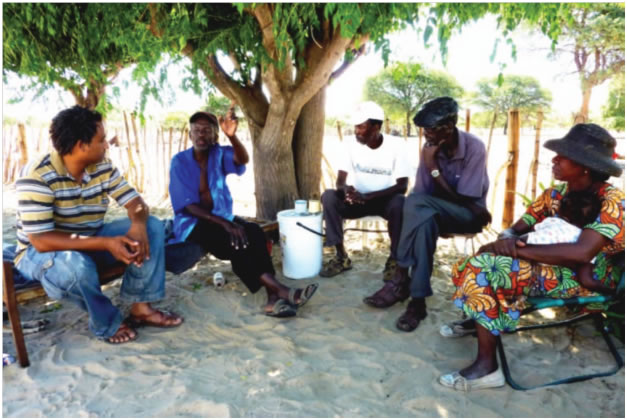
| Information and Communications Technologies in Development |
||
 |
Training Students |
|
One theme that runs through the work is how to design ICTD systems and how to train Computer Science practitioners (and students). Many students are unsure, or even reluctant, to include cultural and social factors in their design and engineering approach: and yet I believe this is essential In order to do this I believe we have to rethink Software Engineering (SE). My approach has been to extend iterative SE into a form of Action Research, something that is quite controversial with some CS researchers as it turns out. Another aspect is to extend existing design architecture abstractions (or patterns) to include social aspects: for example in that work the networking notion of "Quality of Service" becomes "Quality of Communication". |
||
|
Community |
|
| We recognize that there is no “one” community with whom we work. Within a village there are many communities: the elders, the youth, women, migrants, and so on. Each of these has to be given a voice in design; however artefact design has to aim at some “average” group of people. | ||
Reflection
I am becoming more concerned with methodological and ethical issues. I believe these are especially important in the field of ICT and Development.
While I started as more of a positivist in my outlook (and if I can, I use numbers and statistics as the most succinct way of validating insights) I have come to realize that qualitative work, particularly action research, is the best way to deal with very complex systems that are not amenable to controlled numerical experimentation. My current position conflates practice and knowing. Creating knowledge is inextricably intertwined with effective action. Knowledge that does not lead to effective action is not really knowledge and failure to create an effective system is equivalent to a failure of understanding. This is the position of Pragmatist epistemology and is compatible with action research.
As far as method is concerned I will always regard it as easiest if a problem is amenable to an axiomatic, mathematical approach. That is never the case in ICTD. Next up would be a sound positivist experiment. Unfortunately that tool is also too crude to tackle most ICTD problems (although it can be used to great effect in user evaluations). The eventual methodology is a way of exploring a design space in a way that alleviates the restrictions of the designer's own viewpoint and bias. In a cyclical fashion the designers develop according to their skills and learning and according to the users' expressed requirements and their learning. The researchers and the users end up being the design team. The combined approach, fusing action research, industrial design approaches, education and other societal measures was named "Community-based Co-design".